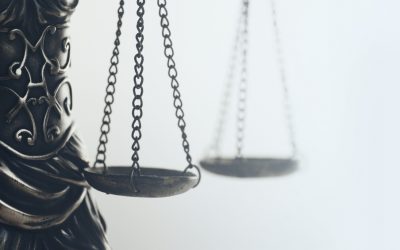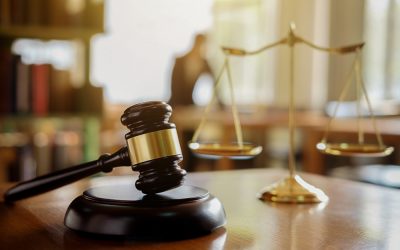
If you’ve been arrested for impaired driving but the arresting officers didn’t breathalyze you, you might be wondering if you can be charged with a DUI without evidence. The short answer is “no.” You can be charged or convicted of a DUI without sufficient evidence. That said, there are nuances to this matter that you must understand if you’ve found yourself in this situation.
Fortunately, a Los Angeles DUI lawyer can provide the information and counsel you need to understand your current situation. If you are charged with a DUI, an attorney can also mount a strong defense on your behalf and fight to get your charges dropped.
You Can’t Be Charged With a DUI Without Evidence
Generally speaking, if there’s no evidence against you for your DUI case or any crime for that matter, you have nothing to worry about. That’s because law enforcement needs concrete proof to show that you committed a crime in order to convict you.
However, don’t underestimate the prosecution’s ability to gather evidence against you. You shouldn’t assume that just because they haven’t performed a chemical test, searched your vehicle, or questioned you thoroughly, it means you’re off the hook. Since there are many ways they can obtain evidence to use against you, you could get convicted of DUI without taking a breathalyzer or blood test.
Types of Evidence in a DUI Case
As mentioned above, you cannot get charged with a crime, even a DUI, without evidence. However, it is a mistake to believe the only evidence the prosecution can use against you in a DUI case is a chemical test of your blood alcohol concentration (BAC).
In order to secure a DUI conviction, a prosecutor must prove that you were under the influence of drugs or alcohol and operating a motor vehicle. Prosecutors can use multiple types of evidence to prove a DUI case, including, but not limited to, the following:
- Chemical blood tests
- Field sobriety tests (FSTs)
- Officer testimony
- Physical evidence (e.g., a bottle of alcohol in the cupholder)
- Video evidence of your driving behavior
Prosecutors typically build cases around more than one piece of evidence. This is why refusing to conduct a chemical test does not guarantee that you’ll avoid a DUI conviction. Don’t assume that the prosecution has nothing on you just because you refused to submit to a chemical test.
DUI without BAC
You may have heard that the legal BAC limit in California is 0.08%. While this is true, California Vehicle Code (CVC) §23152(a) makes it illegal to drive under the influence of alcohol without regard to a specific BAC. Therefore, a chemical test to determine your BAC isn’t a strict requirement to be charged with a DUI.
Refusing a Chemical Test Can Cause Additional Problems
Before you get arrested for a DUI, the police may ask you to perform a preliminary alcohol screening (PAS). Typically, you are legally allowed to refuse the request with no consequences. The ability to refuse a test of your BAC changes if:
- You are on probation for a previous DUI offense
- You are a driver under the age of 21
- You have previously been arrested for a DUI
If you meet any of these conditions, you may face additional penalties if you refuse to submit to testing. A chemical test refusal at this stage becomes a sentence enhancement, meaning you face:
- More time in jail
- More time without your license
- Extra mandatory DUI classes
The specific increases will depend on your DUI conviction history. The more DUIs you have on your record for the past ten years, the harsher penalties you may face. If you’re facing a DUI charge with or without an enhanced sentence, you’ll want to work with a skilled lawyer. An attorney can fight to get your charges reduced and protect you from a damaging conviction.
Field Sobriety Tests Are Not Mandatory
The results of a field sobriety test (FST) can be a convincing piece of evidence to members of a jury. However, you should know that you don’t have to partake in a FST. If you did partake in a FST, a lawyer can help you dispute the results.
Like a PAS, an officer may not compel you to perform an FST. You may politely decline any request to perform an FST, and you do not have to provide an explanation for your refusal. FSTs can show signs of inebriation, but an attorney may be able to successfully challenge the results by showing:
- You were tired
- You have a medical condition
- The officer was unclear in their instructions
If you agreed to an FST, make sure you let your lawyer know what you remember about the experience, as it may allow them to have that part of the officer’s testimony excluded from the trial.
Fighting the Evidence Against You in a DUI Case
While many forms of evidence may be used against you in a DUI, not all may be permitted. If there is an error in how a piece of evidence was gathered, your lawyer may be able to invoke the exclusionary rule and submit a motion to suppress it. Errors that might occur in a DUI case include:
- Improperly stopping you
- Failing to have probable cause to make the arrest
- Conducting an illegal search
- Missteps in the chain of evidence
How Evidence Suppression Can Improve Your Case Outcome
When evidence is successfully challenged, it can weaken the prosecutor’s chances of securing a victory. As more evidence is suppressed, you improve your likelihood of having your charges dropped or receiving a plea deal for a downgraded charge such as public drunkenness, open container, or wet reckless driving.
Having evidence suppressed is not easy. First, you must understand the rules of evidence to properly challenge it, which is why it is critical to have an experienced lawyer working on your side. If your lawyer successfully argues that the evidence was gained improperly, it may not be used to convict you of a DUI.
That said, suppressing evidence can take a great deal of effort and time. To make sure your lawyer has enough time to investigate your case and take the steps required to get your charges dropped, you’ll want to reach out to an attorney ASAP.
Penalties You Could Face if Charged With a DUI
Driving while intoxicated is a dangerous act that can cause serious harm to others. Therefore, those caught driving while impaired can face serious consequences if convicted. If you are convicted of a DUI, you could face any of the following penalties:
- Points on your driving record
- License suspension
- Jail time and fines
- Higher insurance rates
- Difficulty getting higher education, a job, or a loan
Don’t risk facing these penalties. It’s better to avoid them altogether as opposed to dealing with them later down the road. Instead of putting your freedom and livelihood in jeopardy, hire an experienced attorney and get the advocacy you need to make sure this mistake doesn’t follow you into the future.
Do I Need a Lawyer to Help Me with My DUI Case?
Even if there’s no evidence against you, you should still consult with a lawyer just in case. Remember, while a lack of evidence for your DUI is good, you shouldn’t rest comfortably yet. You’ll need a lawyer to ensure that you have a strong defense and that the prosecution’s evidence doesn’t put you at risk.
How a Skilled Attorney Can Help You Win Your DUI Case
In addition to determining if you can be charged with a DUI without evidence, an attorney can take a number of actions to protect you from severe DUI conviction penalties. Here’s what an experienced DUI defense lawyer can do to win your case:
- Answer any questions you have about being charged with a DUI without evidence
- Investigate your case, gather evidence, and analyze details thoroughly
- Develop a strategic defense strategy to get your charges dropped
- Look for sobriety test errors and evidence of police misconduct
- Negotiates with prosecutors for reduced charges
- Challenge the legality of your traffic stop and arrest
- Prepare you for court appearances and hearings
- Presents strong opening and closing arguments at trial
- Offers ongoing support and guidance throughout the legal process
Having a seasoned attorney to take the above-mentioned actions on your behalf is critical to the success of your case. A skilled lawyer can draw on their experience to tailor a defense strategy to fit your unique situation, ensuring everything is done to get the best results possible.
Don’t Fight Against Your DUI Charges Alone
Facing a DUI charge can be incredibly stressful and frightening, especially if it isn’t your first offense. That’s why you’ll want to reach out to a Los Angeles DUI lawyer ASAP. They’ll provide the guidance you need to understand your case and avoid the consequences associated with a conviction.
Contact us today to meet with an experienced DUI attorney and learn more about the DUI defense process. A lawyer can answer any questions you have and determine if you can be charged with a DUI without evidence. We look forward to hearing from you soon.






